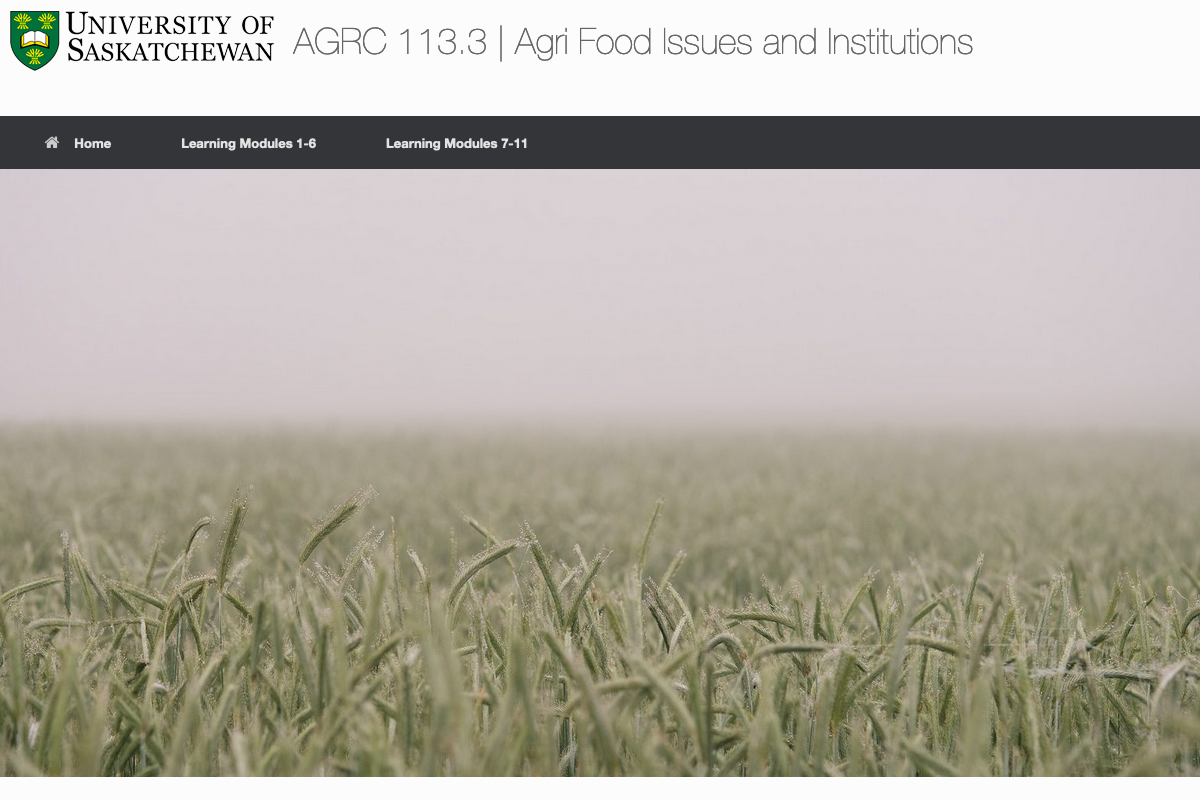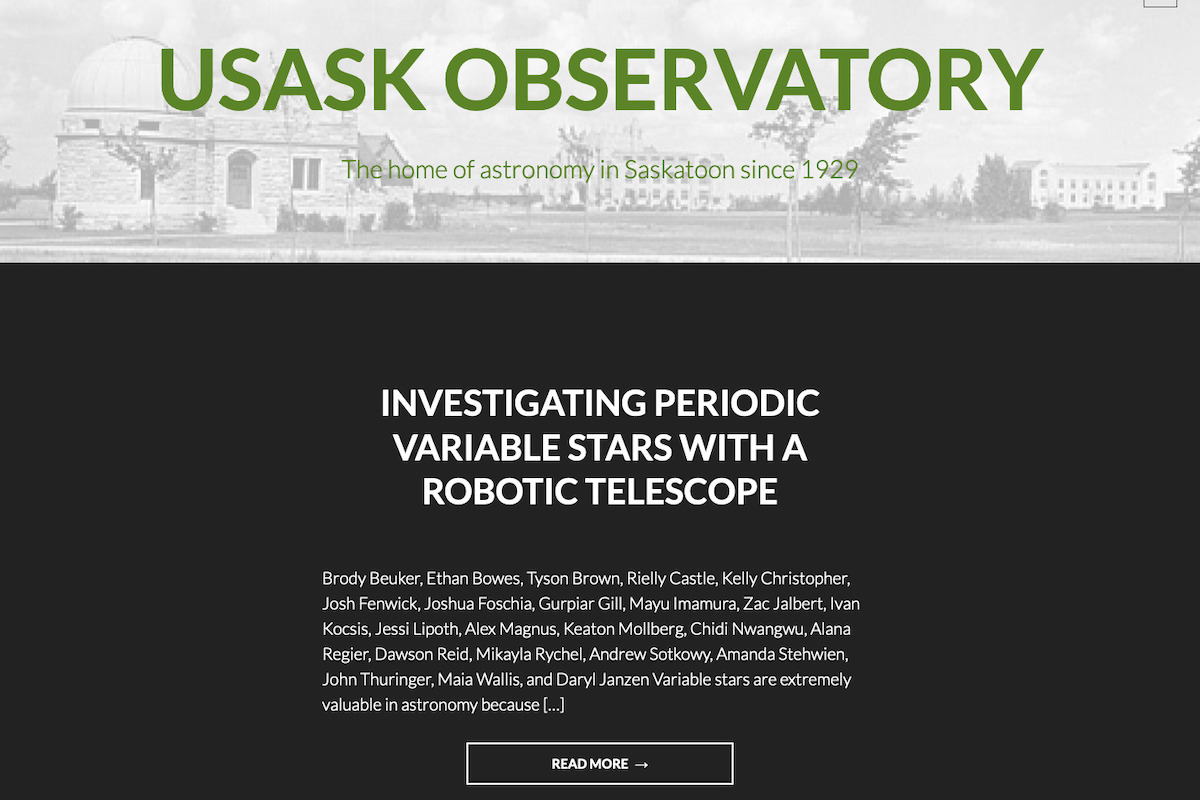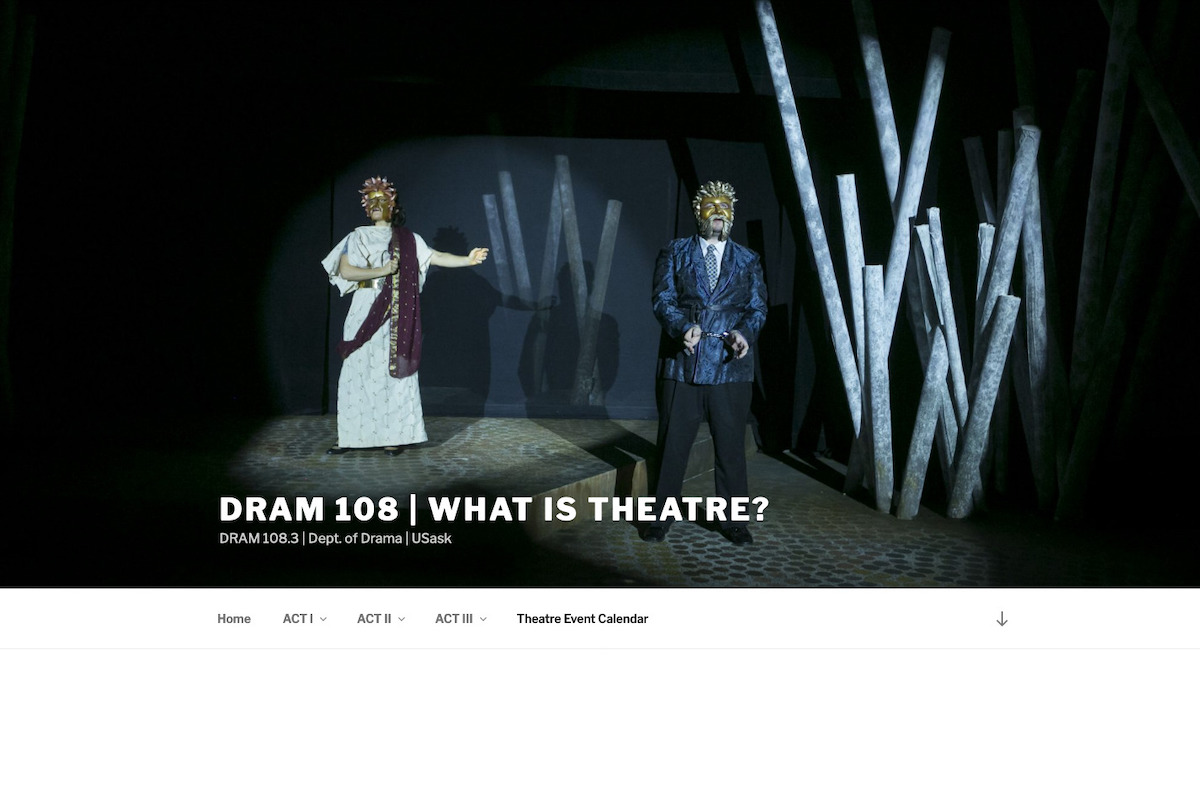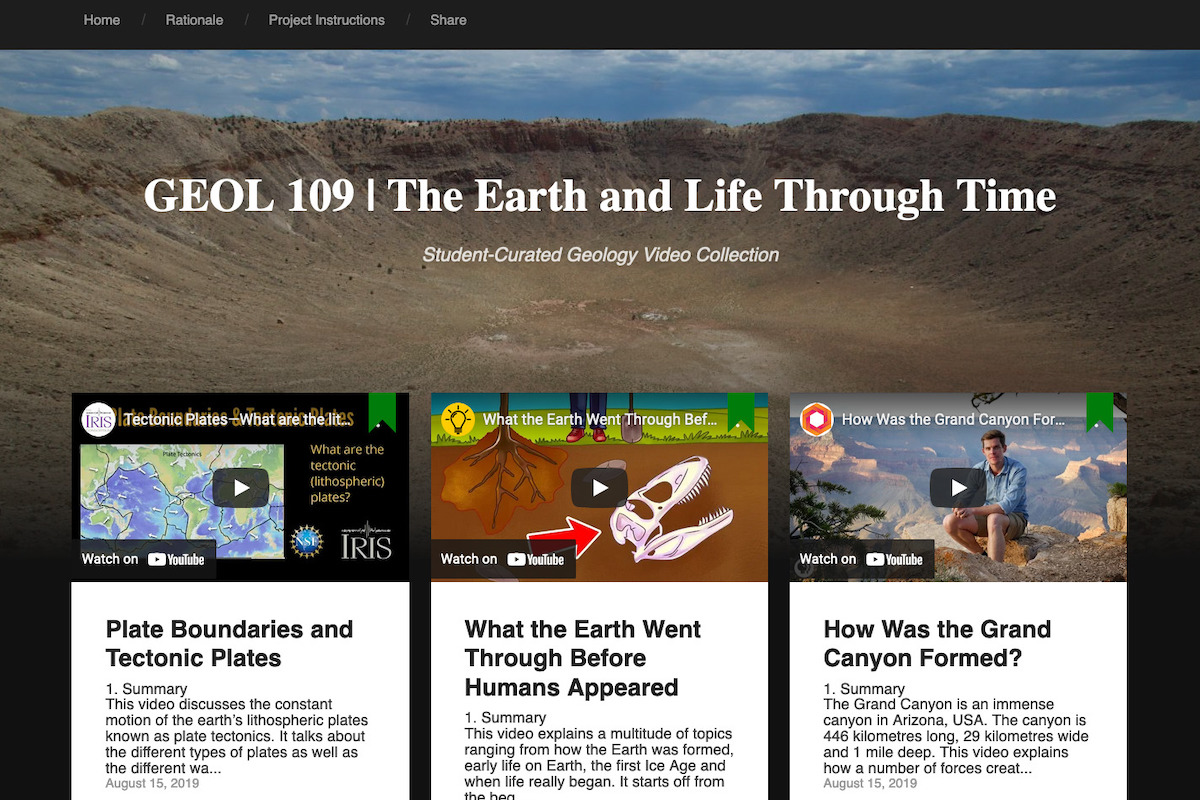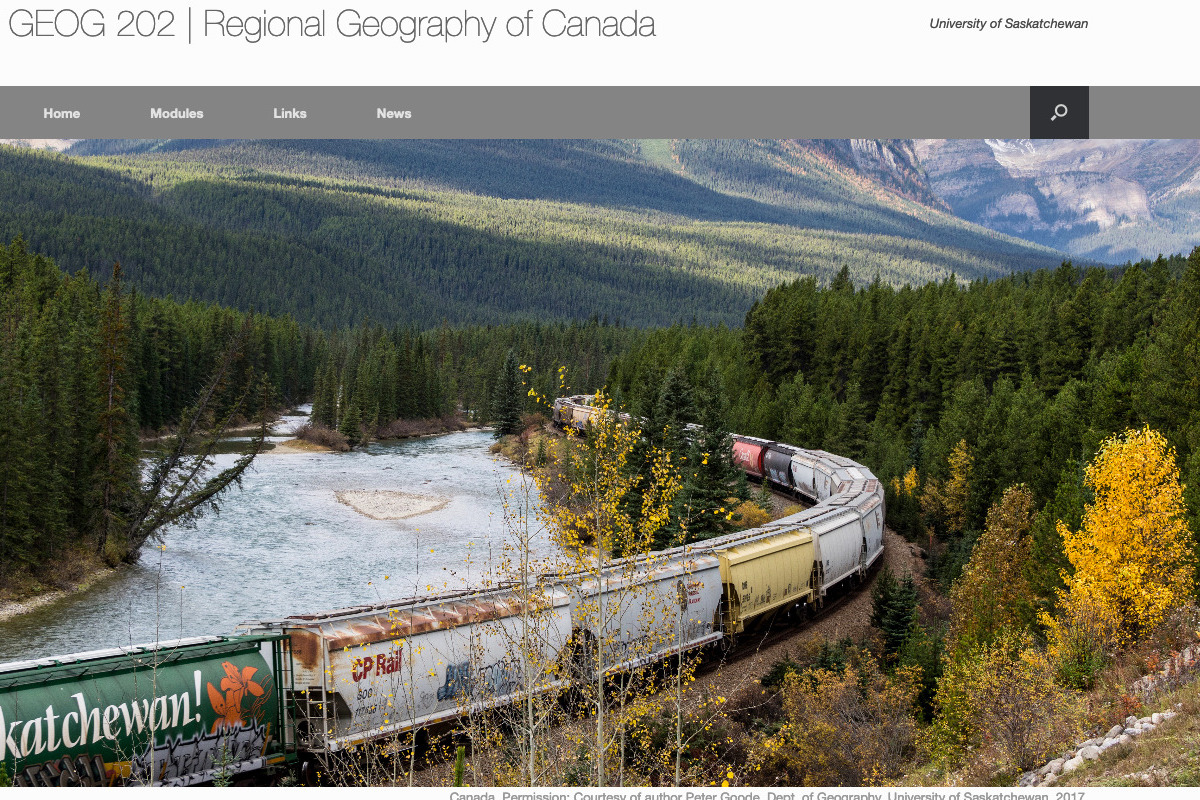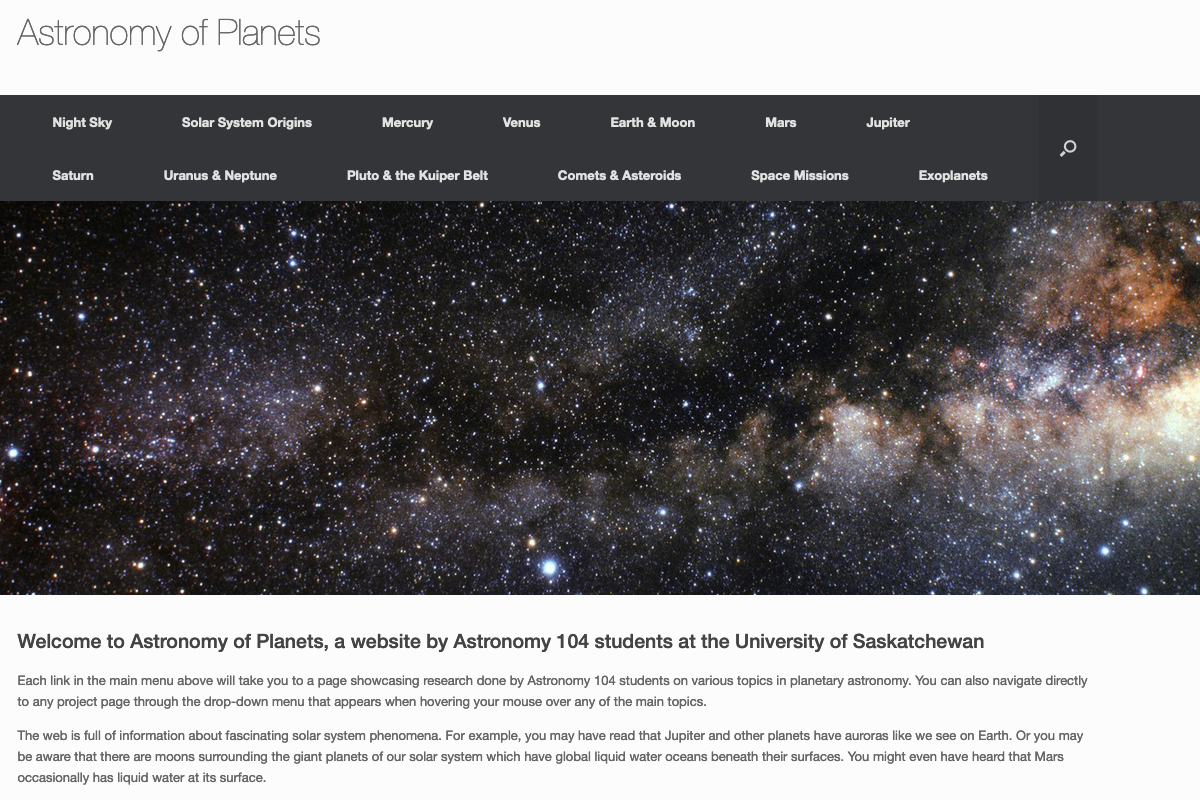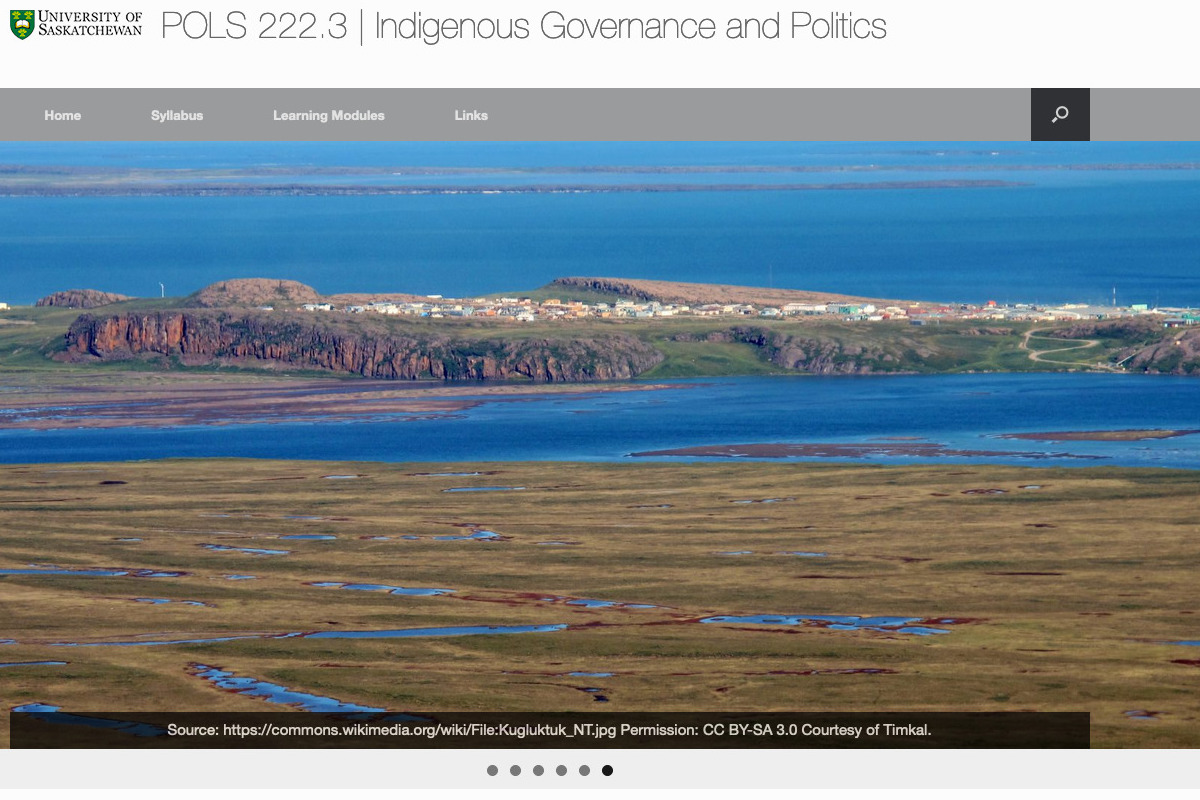What is USask Sites?
What are you working on that you want to share with the world? University of Saskatchewan (USask) Sites offers students and educators their own free WordPress site to build and create a space for teaching and learning, with a set of tools that supports social, interactive, and collaborative learning. It provides a creative space to share portfolios, presentations, research, and passions online. With USask Sites, you’re in control. Connect with others by sharing and collaborating in this open and creative space. Over one-third of the web is built on the WordPress platform (W3Tech, 2021) making it an ideal tool to help build your digital literacy and web design skills. Blogs, websites, portfolios, photo galleries, news feeds, and more, WordPress can power your next learning project.
What can students make?
WordPress is a flexible web-publishing platform. You can use it to make a website, share your writing on a blog, or create a news feed, a research presentation, an online portfolio, a home for your student organization or club, and much more. These are just a few examples of what is possible. With USask Sites, you are in control.
SHOW ME EXAMPLESWhat can educators make?
You can use WordPress to facilitate student learning in a robust digital environment, and by creating collaborative and reflective assignments to develop digital literacy skills. You could build a website for course materials, showcase student work, an online portfolio, presenting research, or recent work out of your lab. These are just a few possibilities with USask Sites.
SHOW ME EXAMPLESNeed assistance?
The Flexible Learning & Technology (FLT) team at the Gwenna Moss Centre for Teaching and Learning (GMCTL) has been using WordPress for a variety of projects since 2013, and are happy to discuss your goals and help you with your project.
CONTACT GMCTLWhy have a site of your own?
With USask Sites you can create a blog, portfolio, or other website that suits your educational, professional, and personal goals. It is a great way to showcase both your current skill as well as what you learn throughout your program. By publishing your work online, you will develop skills in planning, writing, digital design, communication, and research.
GET YOUR OWN USASK SITE

Why teach with USask Sites?
When students become web authors they engage in active and social learning. When you incorporate blogging, portfolios, and other web authoring activities in your class, you encourage your students to develop and apply skills in inquiry, knowledge creation, and translation; communicate with different academic, professional, and cultural audiences; and apply critical and creative thinking to problems.
GET YOUR OWN USASK SITELEARN ABOUT USING SITES WITH YOUR WHOLE CLASSWhy do we think WordPress is an important learning technology?
Writing for the web is different than writing a paper. Not only does it offer unique opportunities for media enrichment and connection with other parts of the web by including hyperlinks, images, videos, emotive GIFs, and more, it is reflective of how much of the world communicates openly today, and expands the potential audience almost infinitely. What could you do with the web that you couldn’t do with a word processor?
DESIGNED FOR REFLECTION AND GROWTH
A blog, by its very nature, is focused on reflective learning practices. The feed, presented in reverse chronological order, presents both an up-to-date standpoint as well as a portal to previous works. Students can refine and extend their work through prompted and supported opportunities to focus on understanding, discovery, and next steps.
STUDENT CONTROL AND OWNERSHIP OF LEARNING
Students maintain ownership and control of their website, managing all aspects of their site upon its creation. They can choose its purpose and form, draft, publish, and revise work on their terms, and purposefully choose how and when they share their work.
DESIGNED TO ENABLE CONNECTION
Blogs were the original social media. Students and faculty exist in local, national, and international networks; using WordPress enables them to connect experiences, concepts, people, and ideas across these various levels. Using WordPress’s ability to follow and engage with a range of authors and content, new connections can form, and old connections can flourish.
INCLUSIVE OF LEARNER-CENTERED ASSESSMENT
Websites are a flexible method of sharing work, allowing works-in-progress to be shared in order to receive feedback and revise iterations of work, as well as sharing final products. WordPress enables feedback from multiple sources, including self, peers, teachers, and outside experts.
Who is using USask Sites?
Here is what some of your colleagues from across campus have to say about teaching with USask Sites.
I have found that blogging provides students with a forum for deeper exploration of topics. The process of blogging and linking to their classmates’ work and to external sources helps them reflect more deeply on course concepts. As a result, students show a deeper comprehension of the course content and a greater ability to apply course concepts to the world around them. The blogging assignment also enables them to share their knowledge, in turn, inspiring their classmates. Feedback on their blogs fosters the growth of digital citizenship and encourages creative ways of thinking about the themes and concepts of the course.
Students are responsible for the initial setup of the blogs at the beginning of the course, and, using the current process, this step requires a time investment. Once students have their blogs set up, they have demonstrated enthusiasm for and engagement in the assignment. Many students have used the blogging assignment as a foundation for developing research questions that they have explored in their major assignments for the course.

Dr. Carrie Prefontaine
Women’s and Gender Studies
As a lecturer, I have used WP in 6 courses over the past four years. WP provides an interactive platform to present learning material to students. It complements the LMS in that the WP site offers a relatively static snapshot of course material while the LMS allows connections to current applications. WP’s advantage is that it is relatively stable, interactive, and allows lecturers to update course material in the medium term. Students have commented that they appreciate how the WP learning material acts as a filter between the readings and what the lecturer wants them to focus on. They also often comment that the WP material is more professional than other ‘online’ courses that only use the LMS. On a more personal note, I found WP to provide great pedagogical value. Mirroring some of what the students have said, using WP makes me think about what students need to know. It makes me think about how I can best present that information. And it provides a variety of tools to do so.

Dr. Martin Gaal
Political Studies
WordPress is an excellent way for students to share their coursework through a medium that can be read by fellow students, family members, or anyone accessing the website. I’ve used it as a way for students to publish their research projects since 2016, and find that they take great pride in designing a page that is visually appealing and presents their own work to the world. From an instructional standpoint, I find that this motivates a higher quality of work than I would typically receive if the work were not published.

Dr. Daryl Janzen
Physics & Engineering Physics
Featured Sites
Students and faculty at the University of Saskatchewan have created a variety of sites to meet their educational, professional, and personal goals. We are proud to showcase just a few as examples of what you can do with a site of your very own.
WGST 210 Syndicated Student Blogs
Every student in this course has their own blog, and writing assignments are syndicated into this central blog roll. As the course is ‘Gendered Perspectives on Current Events’, blogs are an excellent way to have students incorporate media from around the web (videos, hyperlinks, tweets, etc.) into their analytical writing.
AGRC 113 Course Modules
An interactive site for presenting course materials; AGRC 113 uses interactive whiteboards (Padlet) to collectively brainstorm, poll, and organize student thoughts asynchronously.
USask Observatory
Here, you will find research and astrophotography by undergraduate students, stories documenting the Observatory’s rich history, public outreach events, and programming that we host, often in coordination with the RASC and College of Arts & Science.
DRAM 108 Learning Activities
This media rich course site embeds interactive elements and presents active learning instructions for groups to build their own theoretical theatre companies as they learn to answer the question, what is theatre?
GEOL 109 Student-Curated Videos
Students contribute and categorize videos to this site, along with a summary, key terms, loose ends, and key questions. This work forms a collection of resources available to current and future students in Geology 109.
GEOG 202 Course Modules
The Learning Modules for this course are housed on WordPress, in addition to links and news items related to the course topics. .
ASTR 104 Astronomy of Planets
A showcase of research done by Astronomy 104 students on various topics in planetary astronomy. Reading about the latest discoveries in astronomy, you may often find yourself wondering how we know these things that we know. This website goes beyond reporting what we’ve learned about various solar system objects and explains how we know.
POLS 222 Course Modules
The Learning Modules for this course are housed on WordPress, and interactive elements (including quizzes, games, timelines, whiteboards, word clouds, and more) are embedded throughout the content to increase student engagement, check understanding, and reinforce key concepts.
Education’s ETC Makerspace Site
Providing a home for news, events, research and reflection, the ETC Makerspace site serves as a hub for participants and faculty to connect and share openly.
Need some assistance?
While there are plenty of guides online about using WordPress, including entire LinkedIn Learning courses on the subject, sometimes it can be tricky to find exactly the resource you’re looking for. If you can’t find the answers you need, you can always contact us. We are able to answer most questions through email, and we are also happy to meet with you to help with your WordPress project.

